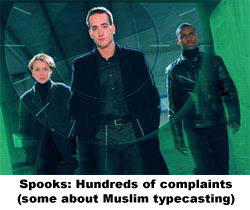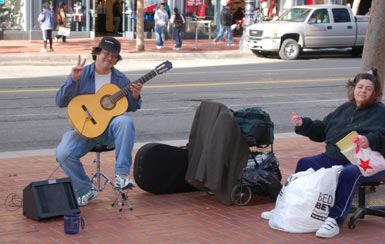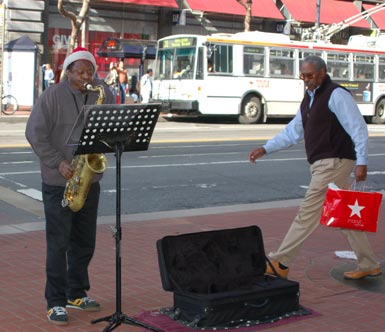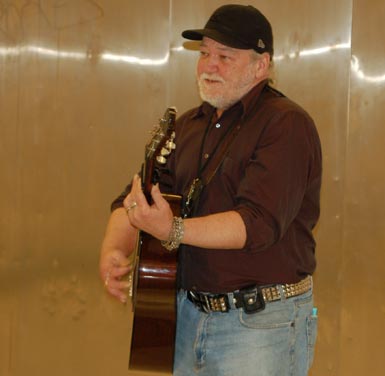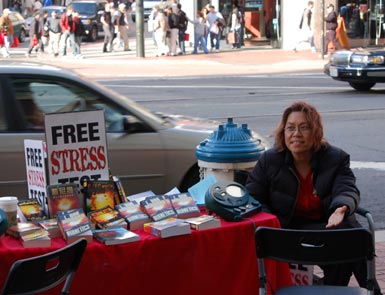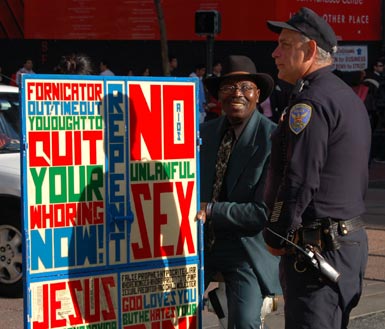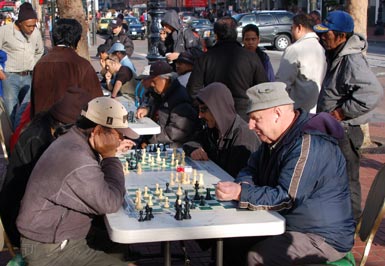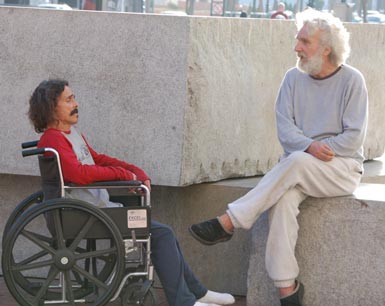On the face of things, "it" has happened here. We live in a state in which the rule of law is precarious, monarchical powers are asserted by our ruler, and money calls the shots. The regime is fairly benign if you are white and not desperately poor; you are invited to consume mass culture and run up credit card debt. But it can turn brutal if you are black, brown, yellow, the wrong religion, poor, unhealthy, queer, very young, old or any combination thereof.
So "it" is pretty bad. But on the other hand, people do resist war and injustice, whether out of conviction or out of necessity. . . Here are links to 12 occasions of resistance from 2005.

1. Good Friday service outside Livermore Lab where nukes are invented

2. Rallying against Social Security Privatization
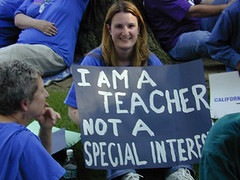
3. Labor takes it to Arnold's doorstep in Sacramento

4. Hiroshima remembered.
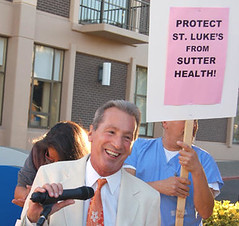
5. Sutter Health threatens to close St. Luke's Hospital; community speaks out.

6. The law, in its majestic equality, forbids the rich as well as the poor to sleep under bridges…
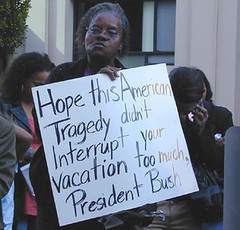
7. Oakland rallies for New Orleans
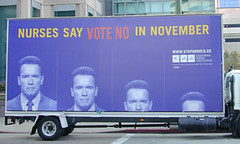
8. Nurses rally against Governor Arnold

9. "Gay bishop" comes to town
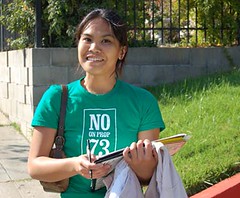
10. Precinct walk, Oakland, October 2005
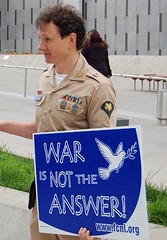
11. Federal building peace vigil
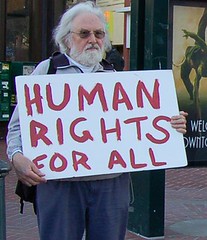
12. Standing up against torture
Hopefully 2006 will be a better year than 2005. With hard work, we can still make a difference to what "it" means.




